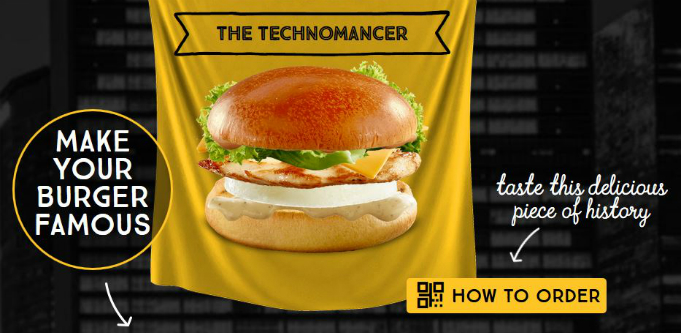
Today’s online community holds the power to shine light through your brand’s behind or drag it mercilessly through the dirt.
This week alone the world turned on artist Taylor Swift with #KimExposedTaylorParty while #PokemonGo enjoyed riding the high wave.
So when McDonald’s New Zealand launched a “Make Burger History” campaign inviting people on the internet to invent and name burgers for free sides, what could go wrong?
“It can quickly go viral when people are quite clever or funny, which is what these brands want but it’s fairly naïve of someone as large as McDonald’s to think people aren’t going to have fun with it,” marketing expert Michelle Gamble of Marketing Angels told SmartCompany.
“Once someone does something that’s controversial or seen to be funny, its very easy for people to jump on the bandwagon.”
When McDonald’s launched the campaign, things started off okay.



But the invented burgers get dark pretty quickly with a range of vitriolic Trump and Aryan-inspired creations also surfacing.
“On the internet people like to show off their creativity even if it’s in a way that’s inappropriate,” says Gamble.
McDonald’s New Zealand has promptly removed the creations but they’re surfing around on sites like Neogaf and Dorkly.
“When has asking the internet to do something ever gone well?” said one commenter.
A spokesperson for McDonalds New Zealand told SmartCompany the 10-week promotional campaign didn’t turn sour until the end.
“It’s been great to see people continue to interact with the site beyond the end of the campaign,” they said.
“The overall ingenuity of our fans has been impressive and gave the campaign a massive publicity boost nearly two months after it finished.
“However it’s unfortunate some creations have been inappropriate right at the tail end.”
Maccas isn’t the first brand to open itself up to the mercy of the internet.
Boost Juice’s recent Name Game campaign inviting people to input their own names on a page updated in real-time did attract a couple of offensive results, but they pale in comparison to McDonalds’ backlash.
Oops . At least someone is having fun 🙂 https://t.co/VeSrWO1QR5
— Janine Allis (@Janineboost) September 9, 2015
The key takeaway for your small business
McDonald’s’ experience presents a good case study to small businesses keen to go viral with their campaigns.
While the in-store “Create Your Own Taste” campaign has appeared to work well across Australia and helped to bring in customers to McDonald’s stores who wouldn’t otherwise have been there, Gamble says this internet stunt was a “dangerous strategy”.
“They’ve miscalculated the intelligence and creativity of their audience to a certain extent with this,” Gamble says.
“You have to be very careful when you crowdsource advertising and marketing promotion.”
As an alternative, Gamble recommends running closed competitions like Smiths’ chips “Do us a flavour” campaign, which invited people to submit entries with new flavour ideas.
“They didn’t make all the entries public,” she says.
“Go back to basics, have a competition, have a prize related to it, you can promote some of the ideas you think are good and get people to vote.”
Before running any public internet campaign, Gamble says it’s important to test the concept with a smaller, closed group first.
“Ask other people what risks they may see,” she says.
But do this with people who match the target audience outside the inner circle of your business, she adds.
“You can do clever things online that can go viral and give your brand exposure for a small amount of money but think through all steps and elements to ensure people can’t damage you brand,” she says.
“If you’re going to make anything public, you have to really think about whether that could come back and bite you.”


COMMENTS
SmartCompany is committed to hosting lively discussions. Help us keep the conversation useful, interesting and welcoming. We aim to publish comments quickly in the interest of promoting robust conversation, but we’re a small team and we deploy filters to protect against legal risk. Occasionally your comment may be held up while it is being reviewed, but we’re working as fast as we can to keep the conversation rolling.
The SmartCompany comment section is members-only content. Please subscribe to leave a comment.
The SmartCompany comment section is members-only content. Please login to leave a comment.